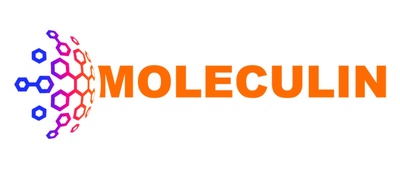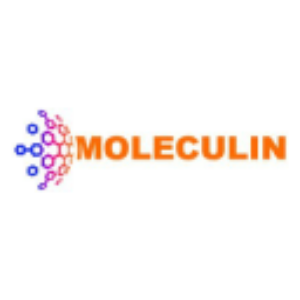Moleculin Announces Presentation of Positive Pharmacokinetics and Tissue-Organ Distribution Data Demonstrating High Antitumor Activity of Annamycin in Preclinical Cancer Models
Moleculin Biotech, Inc. (Nasdaq: MBRX) presented positive preclinical data for Annamycin, a next-generation anthracycline, at the American Association for Cancer Research (AACR) Annual Meeting 2023. The research showcased Annamycin's enhanced liver accumulation, significantly exceeding doxorubicin's uptake, and demonstrated high antitumor efficacy in liver cancer models. Key findings included a six-fold increase in liver accumulation compared to doxorubicin, substantial inhibition of tumor growth, and improved survival rates in various models. Annamycin is currently under evaluation in clinical trials targeting soft tissue sarcoma lung metastases and acute myeloid leukemia. These promising results bolster future studies and potential for Annamycin as a viable treatment option for hard-to-treat tumors.
- Annamycin showed a six-fold increase in liver accumulation compared to doxorubicin.
- Significant inhibition of tumor growth in hepatocellular carcinoma models, with median survival improvement from 29.5 days to 50 days.
- Dramatic increase in survival (>407 days) in the CT26 colon cancer experimental metastasis model.
- Ongoing clinical trials for STS lung metastases and AML support Annamycin's therapeutic potential.
- None.
Sponsored research data presented in a poster presentation at the American Association for Cancer Research (AACR) Annual Meeting 2023
Annamycin demonstrated increased penetration and accumulation in the liver, which correlated with high antitumor activity in HEPA 1-6 hepatocellular carcinoma and CT26 colon cancer liver metastasis models
Ongoing clinical trials evaluating Annamycin for the treatment of STS lung metastases (STS lung mets) and acute myeloid leukemia (AML)
HOUSTON, April 18, 2023 /PRNewswire/ -- Moleculin Biotech, Inc., (Nasdaq: MBRX) ("Moleculin" or the "Company"), a clinical stage pharmaceutical company with a growing pipeline, including Phase 2 clinical programs, for hard-to-treat tumors and viruses, today announced that positive preclinical data regarding the Company's next-generation anthracycline, Annamycin, was presented at the American Association for Cancer Research (AACR) Annual Meeting 2023, taking place April 14-19, 2023, at the Orange County Convention Center in Orlando, FL. This research was sponsored by the Company.
The poster titled, Exploration of Annamycin Organotropism to Target Primary and Metastatic Liver Cancers was presented by Rafal Zielinski, Ph.D., Department of Experimental Therapeutics, Division of Cancer Medicine, The University of Texas MD Anderson Cancer Center as part of the Experimental and Molecular Therapeutic Session: "Novel Antitumor Agents, PI3K/AKT Inhibitors, Proteasome Inhibitors, and Topoisomerases." The poster outlined results from the analysis of the pharmacokinetics of two formulations of Annamycin, liposome formulated drug product (L-ANN) and free Annamycin (ANN), in the liver in comparison with doxorubicin (DOX) and to determine its tumoricidal potential in a hepatocellular carcinoma (HCC) model in situ and in experimental models of liver metastasis.
"Annamycin has continued to demonstrate in preclinical models promising results in hard-to-treat tumors. We are pleased with the findings from these preclinical models in HCC, the most common type of primary liver cancer that is responsible for more than 12,000 deaths per year in the US. The high antitumor activity seen preclinically with Annamycin is very encouraging and provides validation for expanded studies to assess activity in different tumor liver metastasis models as well as HCC models," commented Walter Klemp, Chairman and Chief Executive Officer of Moleculin.
Annamycin is the Company's next-generation anthracycline that has been designed to be non-cardiotoxic (unlike currently prescribed anthracyclines) and has been shown in animal models to accumulate in the lungs at up to 30-fold the level of doxorubicin (a commonly prescribed anthracycline), as well as demonstrating the ability to avoid the multidrug resistance mechanisms that typically limit the efficacy of doxorubicin and other currently prescribed anthracyclines.
The levels of ANN and DOX in plasma and tissue homogenates were assessed using LC/MS. The antitumor efficacy of L-ANN was studied using HEPA 1-6 hepatocellular carcinoma models (subcutaneous, orthotopic, and experimental liver metastatic models) as well as CT26 colon cancer and MIA PaCa-2 pancreatic cancer liver metastasis models.
Data Highlights:
- ANN exhibited significantly higher accumulation in the liver parenchyma when compared to DOX (6-fold higher AUC values).
- Researchers observed clear inhibition of the subcutaneous tumor growth after systemic (IV) administration of L-ANN.
- Increased liver uptake of the drug had a direct effect on activity of the drug in vivo. Remarkable activity of L-ANN was observed in orthotopic models. Significant inhibition of the tumor growth and extension of the survival of L-ANN treated mice vs. vehicle-receiving animals was observed in HEPA 1-6 models (median survival 29.5 vs 50 days (p<0.0001) and 28 vs 59 days (p<0.0001), respectively).
- L-ANN treatment resulted in dramatic increase in survival (median survival >407 days) in the CT26 colon cancer experimental metastasis model. In a separate experiment, significant delay in tumor progression was also observed in pancreatic cancer (MIA PaCa-2) liver metastasis model.
Annamycin is currently being evaluated in ongoing clinical trials for the treatment of STS lung metastases and AML. For more information about the ongoing trials, please visit clinicaltrials.gov and reference identifiers NCT04887298 and NCT05319587, respectively. Unless specifically noted otherwise, references to "Annamycin" refer to the liposome formulated form of the drug.
About Annamycin
Annamycin is the Company's next-generation anthracycline that has been shown in animal models to accumulate in the lungs at up to 30-fold the level of doxorubicin. Importantly, Annamycin has also demonstrated a lack of cardiotoxicity in multiple early-stage human clinical trials, including ongoing trials for the treatment of acute myeloid leukemia (AML) and STS lung metastases. For that reason, although additional data will be necessary, the Company believes Annamycin may not face the same usage limitations imposed on doxorubicin, one of the most common currently approved anthracyclines. Annamycin is currently in development for the treatment of AML and STS lung metastases and the Company believes the drug may have the potential to treat additional indications.
About Moleculin Biotech, Inc.
Moleculin Biotech, Inc. is a clinical stage pharmaceutical company with a growing pipeline, including Phase 2 clinical programs, for hard-to-treat tumors and viruses. The Company's lead program, Annamycin is a next-generation anthracycline designed to avoid multidrug resistance mechanisms with little to no cardiotoxicity. Annamycin is currently in development for the treatment of relapsed or refractory acute myeloid leukemia (AML) and soft tissue sarcoma (STS) lung metastases.
Additionally, the Company is developing WP1066, an Immune/Transcription Modulator capable of inhibiting p-STAT3 and other oncogenic transcription factors while also stimulating a natural immune response, targeting brain tumors, pancreatic and other cancers, and WP1220, an analog to WP1066, for the topical treatment of cutaneous T-cell lymphoma. Moleculin is also engaged in the development of a portfolio of antimetabolites, including WP1122 for the potential treatment of COVID-19 and other viruses, as well as cancer indications including brain tumors, pancreatic and other cancers.
For more information about the Company, please visit www.moleculin.com and connect on Twitter, LinkedIn and Facebook.
Forward-Looking Statements
Some of the statements in this release are forward-looking statements within the meaning of Section 27A of the Securities Act of 1933, Section 21E of the Securities Exchange Act of 1934 and the Private Securities Litigation Reform Act of 1995, which involve risks and uncertainties. Although Moleculin believes that the expectations reflected in such forward-looking statements are reasonable as of the date made, expectations may prove to have been materially different from the results expressed or implied by such forward-looking statements. Moleculin has attempted to identify forward-looking statements by terminology including 'believes,' 'estimates,' 'anticipates,' 'expects,' 'plans,' 'projects,' 'intends,' 'potential,' 'may,' 'could,' 'might,' 'will,' 'should,' 'approximately' or other words that convey uncertainty of future events or outcomes to identify these forward-looking statements. These statements are only predictions and involve known and unknown risks, uncertainties, and other factors, including those discussed under Item 1A. "Risk Factors" in our most recently filed Form 10-K filed with the Securities and Exchange Commission ("SEC") and updated from time to time in our Form 10-Q filings and in our other public filings with the SEC. Any forward-looking statements contained in this release speak only as of its date. We undertake no obligation to update any forward-looking statements contained in this release to reflect events or circumstances occurring after its date or to reflect the occurrence of unanticipated events.
Investor Contact:
JTC Team, LLC
Jenene Thomas
(833) 475-8247
MBRX@jtcir.com
![]() View original content to download multimedia:https://www.prnewswire.com/news-releases/moleculin-announces-presentation-of-positive-pharmacokinetics-and-tissue-organ-distribution-data-demonstrating-high-antitumor-activity-of-annamycin-in-preclinical-cancer-models-301800750.html
View original content to download multimedia:https://www.prnewswire.com/news-releases/moleculin-announces-presentation-of-positive-pharmacokinetics-and-tissue-organ-distribution-data-demonstrating-high-antitumor-activity-of-annamycin-in-preclinical-cancer-models-301800750.html
SOURCE Moleculin Biotech, Inc.
FAQ
What were the key findings from the Moleculin Biotech press release on Annamycin?
What is the survival improvement observed in hepatocellular carcinoma models treated with Annamycin?
How does Annamycin compare to doxorubicin in terms of liver accumulation?
What ongoing clinical trials involve Annamycin?








